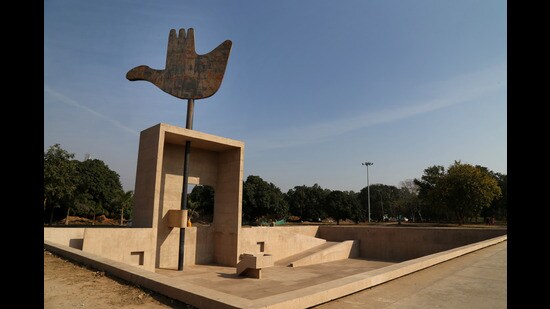Leasehold to freehold conversion: Now, MHA seeks fresh report from Chandigarh
The Chandigarh administration had first sent a proposal for ministry’s in-principle approval in April 2021, which was followed by four reminders
Over 16 months after the UT administration first sent a proposal to the Union ministry of home affairs for allowing conversion of leasehold commercial and industrial properties to freehold, the ministry has sought a fresh report before taking a call.

This comes just four days before the August 29 deadline set by the Supreme Court for the UT and MHA to reach a consensus on Chandigarh’s long-pending policy matters.
But with the MHA seeking a “detailed proposal with relevant rules/regulations, facts and figures”, the property conversion issue is unlikely to see an immediate resolution, said a senior UT official, requesting anonymity.
Since its first proposal in April 2021 for an in-principle approval for conversion of commercial and industrial properties on the pattern of the residential policy of 1996, UT had also sent four reminders to MHA — in August 2021, September 2021, October 2021 and latest in July 2022. The UT had hoped that after the in-principle approval, it will send a detailed proposal on the rates and other aspects to the ministry for its consent.
“Now, the MHA has sought a concrete proposal on the issue,” said the official.
After receiving the fresh proposal, MHA will bring on board other Union ministries, including those of finance, and housing and urban affairs. “It will be a time-consuming exercise and may take several months or years to get a policy decision on the issue after taking all stakeholders on board,” said the official.
Nearly 70% commercial and industrial plots in the city are leasehold, allowing occupation for a limited period, mostly 99 years, with government agencies holding the ownership rights.
The Chandigarh Industrial Policy promises allowing conversion to promote ease of doing business in the city, an idea also favoured by the Administrator’s Advisory Council and repeatedly supported by MP Kirron Kher. Recently, the SC-appointed committee headed by Kher had also recommended it.
August 8 meeting between UT, MHA officials remained inconclusive
Taking a serious note of the UT administration passing the buck to the MHA on long-pending policy matters, the Supreme Court on July 20 had asked the UT adviser to meet the MHA joint secretary and sort them out within a month.
Both were directed to appear before the apex court on the next date of hearing in the “Estate Office versus Charanjit Kaur” case on August 29 if they fail to resolve the issues.
Consequently, a meeting was convened between the UT adviser and the MHA joint secretary on August 8. In the meeting, officers of ministry of housing and urban affairs were also present.
Primarily, the issues of property conversion and rationalisation of misuse charges were taken up. The UT officials had maintained that all requisite documents were submitted with the MHA and different queries on the issues were answered. But no definitive decision was arrived at.
UT officials were then hoping for another meeting soon, but that didn’t take place.
The apex court directions had come following UT’s submission of an action-taken report (ATR) on the recommendations made by the 11-member committee appointed on the court’s directions. In the ATR, fourth since March, the administration had contended that multiple property related matters were pending with MHA and a decision with regard to the property conversion issue was pending despite four reminders.
Other policies in limbo
Rationalisation of building violations and misuse charges
City-specific Tenancy Act
Creation of new posts
Extension of vacant posts that lapsed during the Covid-19 pandemic
Extension of pensionary benefits





